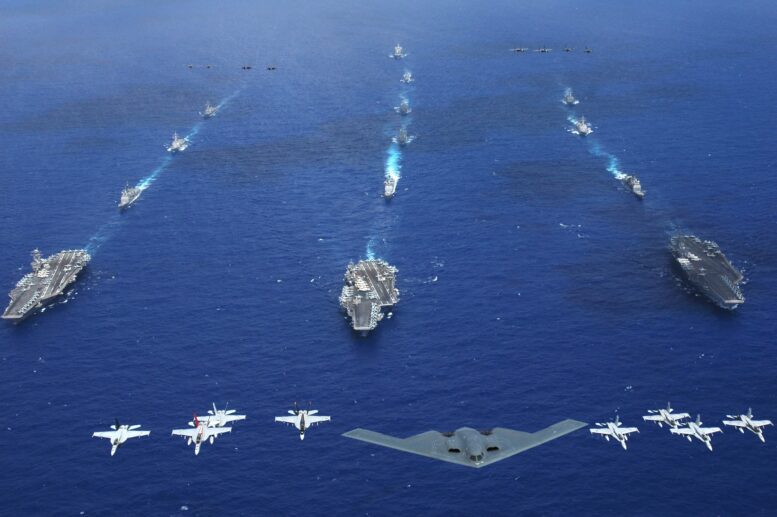The global commons refer to the four domains where mother earth’s shared natural resources, outside of national jurisdiction, are found: maritime, air, space and cyberspace. Among these, the oldest is the maritime domain, followed by air in early 20th century with the discovery of human flight; followed by airspace with the launching of satellites into outer space in the 1950s; and the latest is cyberspace with the introduction of the internet and digital technology in the late 1980s.
Due to congestion, overuse and degradation in these global commons, the United Nations (UN) has come up with a post-2015 development agenda for global governance and the governance of the global commons. The UN contends that the earth’s sustainable development involves economic growth, social inclusion, and protection of the environment and the global commons.
While the world economy has improved by leaps and bounds, gaps in international trade, finance and technology continue. This leads to global imbalance that favors the wealthy nations. Moreover, the universal declaration to protect human rights and uplift social equality has not fully addressed many important social inequities such as the movement of workers, the protection of migrants’ rights and the access to technologies in health, agriculture, education and many others. Furthermore, weak global governance slows down environmental awareness and fails to arrest the increasing rate of climate change, global warming, ozone depletion, and environmental degradation particularly in Antarctica where 80% of the world’s fresh water reserves is stored. Apart from governance, the UN views peace and security as key enablers in protecting the global commons.
The maritime commons remain as the most affected domain insofar as global governance is concerned. This domain covers fisheries, ocean disposal of hazardous waste, law of the sea, cooperation in semi-enclosed and regional seas, seabed mining and a lot more. 90% of raw materials and merchandize passes through various waterways where 75% of these commodities transits through international chokepoints. Between 1970 and 2006 the quantity of goods delivered through the sea increased by 284%. Large oil tankers transport half of the current world’s oil supply.
The cost effectiveness in maritime trade and commerce has created spin-off economic activities and ushered interdependency on the other domains: air (visual tracking, environmental monitoring, and search and rescue), space (communications, satellite navigation and environmental reconnaissance) and cyberspace (digital data for ordering and scheduling, internet).
Due to its vastness, however, the maritime domain has become a lair of unscrupulous state and non-state actors who disrupt or deny the free flow of goods, capital, people and information. The threats are now diffused, irregular and unpredictable. For example, non-state disruptors in the Horn of Africa and the Malacca Strait continue their piratical activities using hybrid technology. A Middle Eastern nation uses small boat swarming tactics in the Strait of Hormuz to harass legitimate use of the sea; while another country in the Orient threatens freedom of navigation in a major waterway in Southeast Asia after heavily degrading the marine environment to put up several military outposts. Another nation wants to rewrite the rules governing the Sea of Asov, adjacent to the Black Sea, in order to deny its neighbors the resources in that body of water.
Recently, an American military commander announced that the Indo-Pacific must remain open and free as the area is at the frontline of strategic competition. He expressed alarm at the Chinese Communist Party’s unified effort “to corrupt and contest the values embraced” by the peoples in the Indo-Pacific region and he cast aside any or all attempts to impose the “might makes right” fallacy. He also re-echoed the defense of freedom of the global commons and respect for the sovereignty of all nations.
Nearly 40 years after the promulgation of the UN Convention on the Law of the Sea (UNCLOS), some member states continue to question the wisdom of those who spearheaded this rules-based international effort to protect and preserve the maritime commons for global public good.
Only determined world leaders who are committed to international prosperity, peace and stability could reduce or eliminate the gaps or imbalances that threaten environmental sustainability, global trade and commerce, social development and the global commons. There should be adequate room for adjustments in the global governance regime so the benefits of the common heritage of mankind could pass on to future generations.
